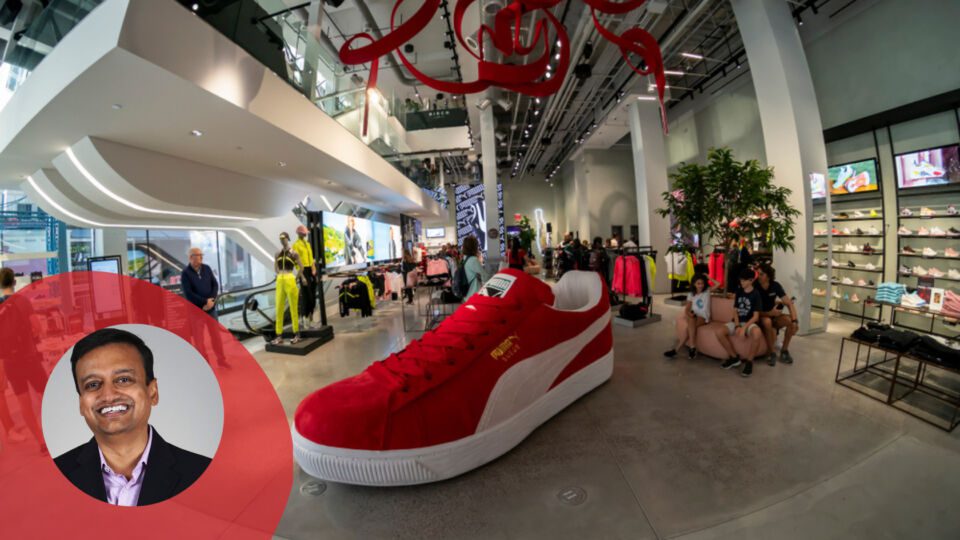The retail industry experienced a complete 360-degree transition since the onset of the pandemic. Consumers are no longer satisfied with just making a transactional product purchase from a brand; they crave a purchase from a brand they can get behind, a brand that has purpose, that works to build a sense of community, that offers consumers an interactive shopping experience. In fact, 52% of millennials stated that their spending goes to experience-related purchases.
But what does that really mean? How can retailers distill that information and pivot their strategies in the months ahead to ensure that they’re no longer just keeping up with consumers, but anticipating and building the shopping experience they crave? Simply put, what is the future of experiential retail?
Experiential Retail: What it is and How we Got Here
First, let’s take a look at what we’ve done in the market thus far. Experiential retail, in its most nascent form, is when retailers implement immersive, interactive, technology-enhanced shopping experiences. Nordstrom, for instance, is a prime example. Prior to the pandemic, the brand opened a retail flagship store in New York City that offered seven levels of an interactive shopping experience, complete with restaurants, spas, a personal styling lounge and various Instagrammable photo opportunities for content creators. This concept fueled a lot of retailers; in fact, 68% stated that they would begin investments towards experiential retail in 2020.
Fast forward to today and we are seeing immersive experiences in multiple industries, including advertising, food and beverage, sports and retail shopping. Particularly as we emerge from the pandemic, experiential spending is already coming back strong, as consumers place more emphasis on appearance and start to spend more on tangible products related to travel and other experiences. Retailers are being forced to adapt and evolve to this new reality. Last year, Zoom-based experiences skyrocketed overnight, and many late adopters are continuing to shop online, regardless of in person shopping being back on the horizon.
Advertisement
Experiential retail immerses consumers in a brand, a culture; it showcases what makes it unique. The goal of experiential retail isn’t necessarily focused on boosting sales; it’s engagement. Consumers support brands that actively engage them by including them in their branding and marketing strategies. Retailers and brands that will continue thriving in the current retail industry will do so by creating enthralling experiences that go above and beyond.
Where we go Moving Forward
Today, loyalty is everything. The pandemic forced consumers to take a hard look at how and where they were choosing to invest their hard-earned dollars. Focusing on experiential retail does more than just attract new consumers; it helps to retain existing consumers, which also costs 5 times less than advertising to new consumers.
Let’s take a look at a technology that has emerged to enhance experiential retail. Augmented reality has been on the rise for years, with virtual reality experiences coming to the forefront. It has quickly become an essential technology for retailers to utilize. The onset of the pandemic accelerated the shift to digital shopping. In fact, consumers ranked AR as one of the top technologies that they’re seeking to assist in their daily lives. Augmented reality has proven that it offers up enormous value for consumers.
Consumers are the most important piece of any retail marketing strategy. Providing the best experience for your consumers is an essential factor in which most retail businesses survive. If the pandemic taught us one thing, it’s that change is not always a bad thing. Thinking long-term, moving experiential retail online will help retailers to better scale experiences and reach a bigger audience. Retailers and marketers should embrace industry changes and transform their strategies and tactics.
Udayan Bose is Founder and CEO of NetElixir. He founded the company with a vision to provide online marketers worldwide with a paid search campaign optimization solution capable of delivering magical performance. Bose recognized the potential of search marketing as an essential advertising channel in 2004. Having experienced firsthand the complexity involved in running a profitable paid search campaign, he was driven to develop a system that delivers predictable and efficient campaign performance, allowing marketers to fully leverage the power of paid search as a high value sales generator. Prior to starting NetElixir, Bose was Director of Business Development for PartyGaming, the world’s largest online gaming company. In this role he was responsible for building a new business unit from scratch, PartyBingo, which went on to become a major revenue generator for the company. Bose regularly lectures the MBA classes at the Johnson Graduate School of Management, Cornell University; Zicklin School of Business, Baruch, NY and the Indian School of Business, Hyderabad. He has been featured in The New York Times, Forbes and Time magazines and holds a Bachelor’s Degree in Chemical Engineering from the Indian Institute of Technology, Delhi.




